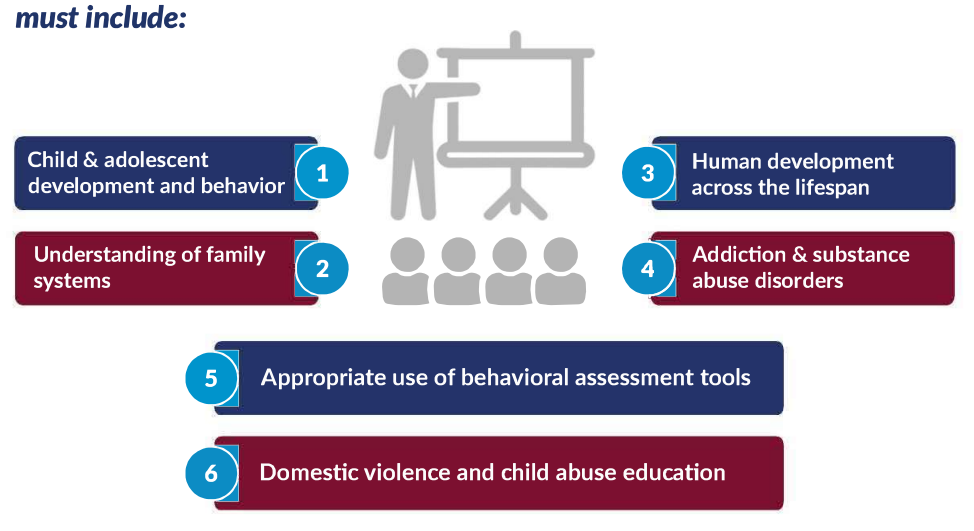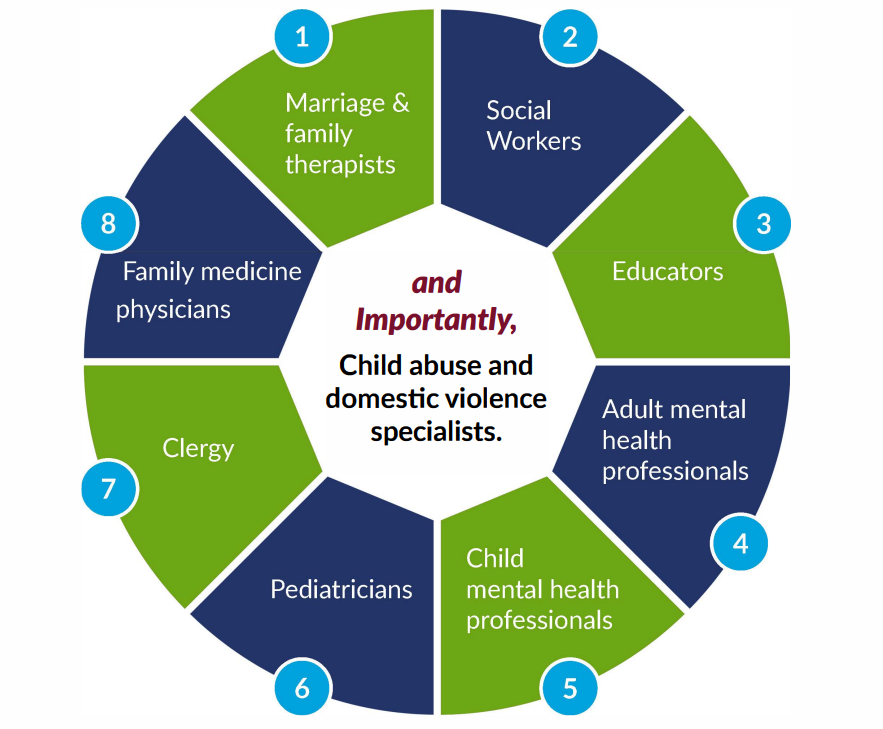We are looking for professionals with legal, financial, research, public health, executive and lobbying experience to join our Board of Directors!
If you are interested, we would love to hear from you
Contact us at: crpcwatch@gmail.com or via the contact us page of our website
With special consideration of ethnic & cultural variations, such training must include:

For Urgent Consideration:
“The decisions of state judges and Child Protective Service divisions have a profound impact on the well-being of children and families, resultantly affecting Our Nation’s Health. Judicial and CPS determi- nations influence conditions known as Social Determinants of Health, contributing to population health outcomes and quality of life- not only for the parties involved – but for individuals, families and commu- nities across the nation. Through collaborative work effort, the Center for the Rights & Protection of Children, aims to bring to light additional training judges might need towards optimizing child safety & strengthening families.”
Erica M. Allen Winslow, MD, MPH
Founder & Executive Director
To better protect children, states must adopt a graduated tier-based evaluative approach for managing reports of child abuse in custody cases.
In the graduate tier-based approach,

(1) CPS triages initial reports of abuse
a All reports of child sexual abuse must be evaluated in custody matters
b Custody cases involving multiple reports of child sexual & physical abuse must be transitioned through each evaluative tier
01 CPS TRIAGES INITIAL REPORTS
02 REFERRED FOR HIGH LEVEL EVALUATION
03 REFERRALS TO ENSURE FUTURE SAFETY
(2) Additional & repeat reports are NOT SCREENED OUT, but are transitioned through higher levels of evaluation by a team with greater expertise.
Current statistics Reveal:
• In 2016, CPS received 4.1 million reports of child abuse, involving 7.1 million children.
• Childhood disclosures of sexual abuse to authority are often delayed.
For Urgent Consideration:
“Child Protective Services may lack the capacity to serve as the sole authority for handling reports of child maltreatment in family law matters across the states. On matters of child abuse in custody cases, states must adopt a graduated tier-based evaluative system where repeat reports of child sexual & physical abuse are transitioned through higher tiers of evaluation separate from Child Protective Services.”

• Evidence of suspected child maltreatment • Evidence and reports of domestic abuse
• Diagnosis and status of medical conditions
• Names and visit dates for all medical providers & specialists
• Academic and school attendance records, including IEP reports
• Mental health diagnoses and treatment
• Neuropsychiatric and psychological assessment results
• The names, phone and address of private caretakers Emergency medical visits
Courts must consider trends & changes along the lifespan for determining child well-being
AUDIO & VIDEO EVIDENCE
CPS and judiciary interviews with children & teenagers pertaining to matters of child maltreatment and overall well-being must be captured under concealed audio and video surveillance. Such information is admissible under the universal evidentiary standard recommend above.
(i) child and adolescent development and behavior,
(ii)understanding of family values,
(iii) human development across a lifespan,
(iv) addiction and substance abuse disorders,
(v) appropriate use of behavioral assessment tools, and
(vi) domestic violence and child abuse training by objective experts in both fields respectively.
Additional specification in such act would extend such requirement to already appointed judiciary and
require renewal of such training or certification every 2 years.
The JIRC Reform Act adds an amendment to VAC 17.1-902;
To ensure public trust and confidence in the legal system, all responses of the JIRC to judicial complaints must include an explanation of any actions or pending actions taken in reference to the
issues of the complaint. If not action is taken on a complaint to the JIRC, the JIRC shall provide an explanation of the rationale for which no action was taken within 10 business days.
And,
All complaints to the JIRC shall be public record and accessible via FOIA
Proposed Amendment:
Amend Va. Code Ann. §20-88.35 to ensure the accuracy of child support calculations and arrears.
Legal Framework:
Under 42 U.S. Code § 654:
(A) The state agency [DCSE] must ensure that procedures are in place for individuals who owe arrearages of child support exceeding $2,500. This includes ensuring that each concerned individual is afforded notice of the determination and consequences, along with an opportunity to contest it.
(C) No court of the United States or any state, nor any state officer or agency, may make, execute, or enforce any order or process in violation of this section.
Proposed Amendment:
Amend Va. Code Ann. § 20-124 to add § 20-124.2.2, referred to as the Shared Parenting and Child Safety Act.
In Cases of Allegations of Abuse:
(a) Prior to any final custodial determination, there must be a thorough investigative process by law enforcement and child protective services, with evidentiary reports provided to the court.
(b) Courts shall not penalize, threaten to penalize, impose supervised visitation, require burdensome psychological evaluations, or impose excessive financial penalties against any party bringing forth good-faith allegations of child maltreatment based on reasonable belief.
(c) The definitions of abuse and neglect shall align with those outlined in Chapter 15 of the Code of Virginia and 22 VAC 40-705-30 of the Virginia Administrative Code.
The CRPCs proposed Protective Parent Act of 2020 respond to the family court crisis and specifically recent directives of the U.S. Congress, H. Con. Res. 72 (Senate Concurring), 115th Congress (2nd Sess. Sept. 25, 2018). The U.S. Congress has stated, in part:
(1) Child safety is the first priority of custody and parenting adjudications, and courts should resolve
safety risks and claims of family violence first, as a fundamental consideration, before assessing other best
interest factors;
(2) All evidence admitted in custody and parenting adjudications should be subject to
evidentiary admissibility standards;
(3) Evidence from court-affiliated or appointed fee-paid professionals regarding adult or child abuse allegations in custody cases should be admitted only when the professional possesses documented expertise and experience in the relevant types of abuse, trauma, and the behaviors of victims and perpetrators;
(4) States should define required standards of expertise and experience for appointed fee-paid professionals who provide evidence to the court on abuse, trauma and behaviors of victims and perpetrators, should specify requirements for the contents of such professional reports, and should require courts to find that any appointed professionals meet those standards;[and]
(5) States should consider models under which court-appointed professionals are paid directly by the courts, with potential reimbursement by the parties after due consideration of the parties’ financial circumstances.
Virginia is one of only two states (along with South Carolina) where the judiciary remain virtually unaccountable to the public. They lack the requisite experience or training to decide domestic relations cases involving child & domestic abuse as issues of concern and fail to enforce Virginia’s immunity laws that protect “good faith” reporters of child abuse, neglect and domestic violence, as set forth at Va. Code
Ann. § 63.2-1512:
“Any person making a report pursuant to § 63.2-1509, a complaint pursuant to § 63.2-1510, or
who takes a child into custody pursuant to § 63.2-1517, or who participates in a judicial
proceeding resulting therefrom shall be immune from any civil or criminal liability in
connection therewith, unless it is proven that such person acted in bad faith or
with malicious intent.”
Substantial sums of federal funds are being diverted to programs that punish “good faith” reporters of child abuse. Family courts commonly lead “protective parents” into protracted and costly litigation, in compliance with non-scientifically grounded protocols promoting supervised visitation programs and forced compliance with select court-appointed psychologists of questionable ethical and moral standards.
Moreover, parents trying to protect their children are often presented with threats of jail-time or sanctions
to enforce their compliance with unlawful separation from their children as penalty for reporting child and
domestic abuse in good-faith.
Amend Va. Code Ann. §20-88.35 add: to ensure the accuracy of child support calculations
and arrears
The court may modify child support arrears to resolve errors in calculation, computation, and to resolve discrepancies where accruals of child support arrears result from failures of due process.
And,
As per Under 42 U.S. Code § 654, (A) the state agency [DCSE] shall have in place procedures for individuals who owe arrearages of child support in an amount exceeding $2,500, that “each individual concerned is afforded notice of such determination and the consequences thereof, and an opportunity to contest the determination.”
Further, under provision “C” of the 42 U.S Code § 654, “No court of the United States or any State, and no State (or officer or agency thereof), may make, execute, or enforce any order or process in violation of this section.”
We propose that child & family abuse matters might be better managed by a panel of unbiased child-focused professionals, to include:


1 Presently DHHS issues grants to states in support of Healthy Marriage and responsible Fatherhood Initiatives totaling $150 million dollars. We assert that gender-based funding may drive the direction of child maltreatment determinations away from focus on child safety and well-being but in favor of the parent who’s gender matches where the money flows.
Senator Mark Keam
District 35
P.O. Box 1134
Vienna, VA 22183-1134
Re: Proposed Bills & Constitutional Amendments for Term 2020
Dear Senator Keam,
It is with great pleasure that we introduce you to the Safe Children, Thriving Families & Judicial Accountability Initiatives of the Center for Rights and Protection of Children (CRPC). The CRPC’s mission is to keep children safe and families thriving. Our Campaign proposes constitutional and legislative reform in response to the family court crisis affecting the health, safety, and well-being of individuals, families, and communities in the Commonwealth of Virginia and across the nation.
We hereby present to you Virginia’s Protective Parent Act of 2020 and Judicial Reform Act of 2020, which are outlined in more detail below.
Background
The CRPC’s proposed Protective Parent Act of 2020 and Judicial Reform Act of 2020 respond to the family court crisis and recent directives from the U.S. Congress, specifically H. Con. Res. 72 (Senate Concurring), 115th Congress (2nd Sess. Sept. 25, 2018). The U.S. Congress has stated that:
Virginia’s Family Court Crisis
Virginia is one of only two states (along with South Carolina) where the judiciary remains virtually unaccountable to the public. They lack the requisite experience or training to decide domestic relations cases involving child and domestic abuse, and fail to enforce Virginia’s immunity laws that protect “good faith” reporters of child abuse, neglect, and domestic violence, as set forth at Va. Code Ann. § 63.2-1512.
Substantial sums of federal funds are being diverted to programs that punish “good faith” reporters of child abuse. Family courts commonly lead “protective parents” into protracted and costly litigation, in compliance with non-scientifically grounded protocols promoting supervised visitation programs and forced compliance with select court-appointed psychologists of questionable ethical and moral standards.
There is evidentiary and clinical support for the Protective Parent Act. We refer you to:
Our Proposal
We propose constitutional and legislative reform which may be summarized as follows:
I. Constitutional Amendment on Judicial Elections
We propose an Amendment, by a majority vote of each house and popular vote, pursuant to Va. Const. art. XII, § 1, or a Constitutional Convention, by two-thirds vote of each house and popular vote, pursuant to Va. Const. art. XII, § 2, as follows:
A. Promoting Judicial accountability through a non-partisan Merit Qualification Committee (consisting of both non-lawyers and lawyers) for gubernatorial appointments to fill mid-term vacancies of appellate, trial, and district courts.
B. Promoting judicial accountability through a popular vote of qualified candidates and for the re-election of appointed judges at the next general election following appointment.
C. Establishing limits on campaign financing contributions adopting the federal campaign spending/contribution limits.
D. Implementing non-confidential Judicial Performance Evaluations, pursuant to American Bar Association Special Committee on Evaluation of Judicial Performance, Guidelines for the Evaluation of Judicial Performance (1985).
E. Permitting litigants to opt for a jury trial in lieu of having a sole judge decide contested custody matters where child and domestic abuse are factors of dispute.
II. Legislative Reform: Proposed Bills to Amend the Virginia Code
We propose introduction of Bills to amend existing statutes in the Virginia Code, as follows:
A. Broadening existing immunity protections for good-faith reporters of child abuse protecting parents from custodial loss as penalty for honest efforts to protect their children.
B. Adding universal evidentiary standards to be applied in child custody cases so that critical information necessary for determining safety and wellbeing of children is not omitted as evidence in trial.
C. Requiring mandatory training for trial judges who determine domestic relations cases on child abuse, neglect, and domestic violence by objective professionals with expertise in such areas.
D. A graduated tier-based evaluative approach in responding to child abuse reports in custody matters.
E. Adding stipulations to protect stay-at-home parents who are primary caretakers of their children, against excessive attorneys’ fees, fines, and sanctions, prohibiting jail time as penalty for failure to pay such fees related to custody & divorce.
For the General Assembly Session commencing in January 2020 for the Commonwealth of Virginia, we have prepared and enclosed draft Amendments and Bills for your review and sponsorship consideration.
Should you have any questions or concerns, please do not hesitate to contact us.
With Warm Regards
Farah Khakee JD
Associate Director, Policy and Legislation
Erica M. Allen Winslow, MD, MPH,
Founder & Executive Director
Center for the Rights & Protection of Children, Inc.